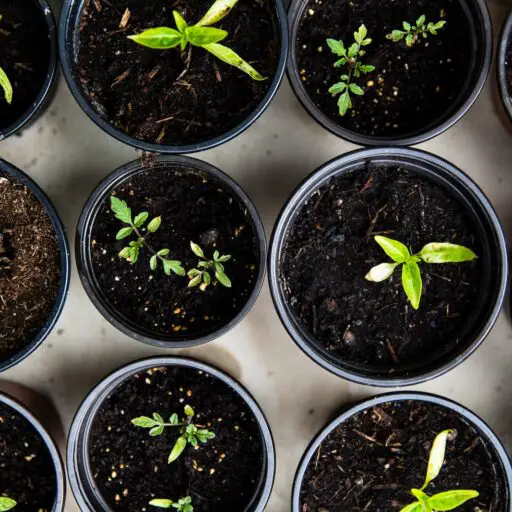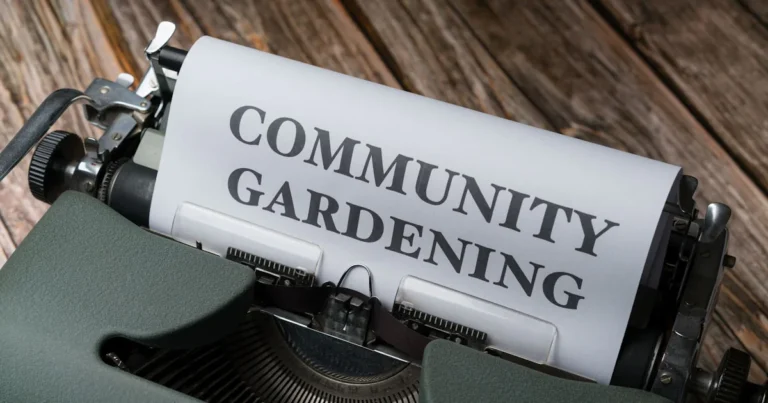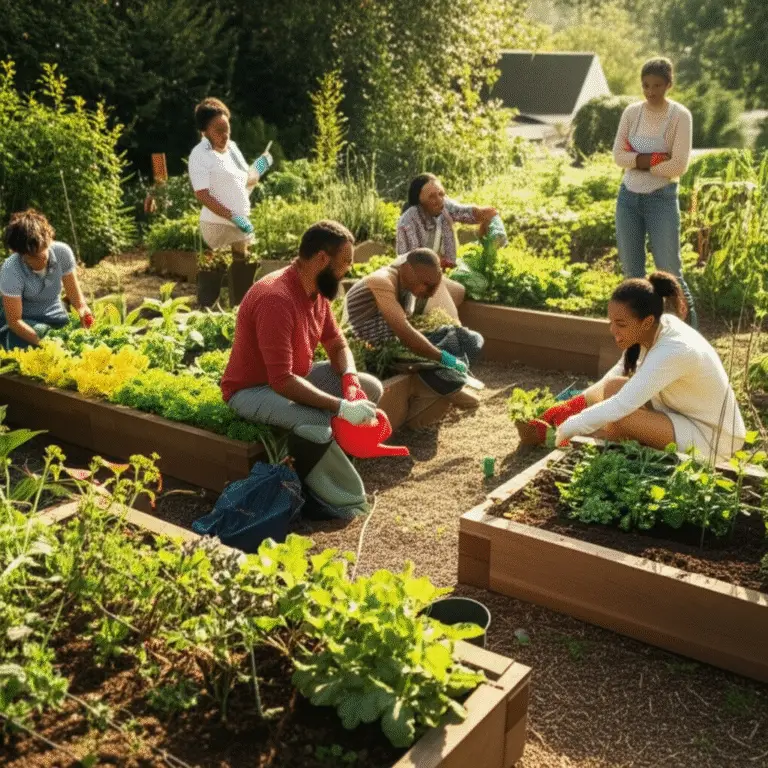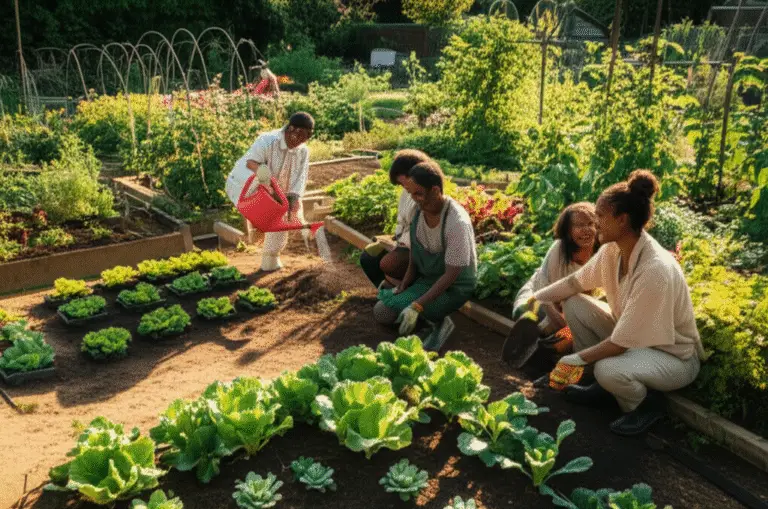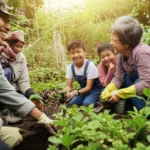Support our educational content for free when you purchase through links on our site. Learn more
Imagine stepping into a vibrant patch of green in the middle of your neighborhood — rows of thriving vegetables, blooming flowers, and friendly faces exchanging gardening tips and smiles. For many, community gardens are not just about growing food; they’re about growing happiness, resilience, and connection. But what exactly makes participating in a community garden such a powerful boost for mental health and wellbeing? From reducing stress hormones to forging lifelong friendships, the benefits run deep and wide.
In this article, we’ll uncover 10 surprising ways community gardening nurtures your mind and soul — backed by science, real stories, and expert insights. Whether you’re battling anxiety, seeking social connection, or simply craving a meaningful hobby, community gardens offer a natural sanctuary for healing and growth. Ready to discover why digging in the dirt might just be the best therapy you never knew you needed? Let’s get growing!
Key Takeaways
- Community gardening significantly reduces stress, anxiety, and depression by combining physical activity, nature exposure, and mindfulness.
- Social connections formed in gardens combat loneliness and build emotional support networks.
- Gardening improves cognitive function and attention restoration, enhancing overall mental clarity.
- Participating fosters a sense of purpose, achievement, and self-esteem through nurturing plants and contributing to the community.
- Community gardens serve as inclusive, safe spaces promoting wellbeing for people of all ages and backgrounds.
- Beginners can easily overcome barriers with accessible tools and supportive garden communities.
Ready to start your own garden journey? Check out ergonomic tools like Fiskars garden shears and protective Bionic gloves to make your gardening experience comfortable and joyful!
Table of Contents
- Quick Tips and Facts 🌱
- Digging Into the Roots: The History and Science of Community Gardening and Mental Wellbeing 🌿
- 1. How Community Gardens Boost Mental Health: The Psychological Perks 🧠
- 2. Social Connections and Emotional Support: Growing Friendships in the Soil 🤝
- 3. Physical Activity and Nature Therapy: Moving Minds and Bodies 🌞
- 4. Stress Reduction and Mindfulness: Finding Zen Among the Veggies 🧘♀️
- 5. Sense of Purpose and Achievement: Harvesting Confidence and Joy 🥕
- 6. Community Gardens as Safe Spaces: Inclusivity and Mental Wellness for All 🌍
- 7. Overcoming Barriers: How to Get Started and Stay Engaged in Community Gardening 🚀
- 8. Case Studies and Real Stories: Community Gardening Successes for Mental Health 🌟
- 9. Expert Insights: What Psychologists and Gardeners Say About This Green Therapy 🌼
- 10. Tools, Tips, and Resources: Your Ultimate Guide to Thriving in a Community Garden 🛠️
- Conclusion: Why You Should Grab Your Gloves and Join a Community Garden Today! 🌻
- Recommended Links for Further Reading and Support 🌐
- FAQ: Your Burning Questions About Community Gardens and Mental Health Answered 🔍
- Reference Links and Scientific Studies 📚
Ready to dig in? Let’s cultivate some knowledge and happiness together! 🌷
Quick Tips and Facts 🌱
Before we dive deep into the lush world of community gardening and mental health, here are some quick nuggets to get you started:
- ✅ Community gardening significantly boosts subjective well-being compared to individual gardening or non-gardening outdoor activities. (PMC Study)
- ✅ Gardening reduces stress, anxiety, and symptoms of depression by promoting mindfulness and physical activity. (Texas A&M AgriLife)
- ✅ Social connections formed in community gardens foster emotional support and reduce feelings of loneliness. (MSU Research)
- ✅ Exposure to green spaces improves cognitive function, attention restoration, and resilience. (Attention Restoration Theory)
- ✅ Community gardens create safe, inclusive spaces that nurture a sense of purpose and achievement.
- ✅ Getting started is easier than you think — many gardens welcome beginners with open arms and tools! (Community Gardening™ Tips)
Fun fact: Gardening can be your brain’s best workout — it’s like yoga for your neurons! 🧠🌿
Digging Into the Roots: The History and Science of Community Gardening and Mental Wellbeing 🌿
Community gardening isn’t just a modern trend — it’s a time-tested tradition that has blossomed worldwide as a tool for social cohesion and mental wellness.
A Brief History of Community Gardens
- Originating in the 19th century during urbanization, community gardens provided city dwellers with fresh produce and green space.
- Victory Gardens during World Wars I and II showed how gardening united communities under stress.
- Today, community gardens serve as urban sanctuaries promoting sustainability, food security, and mental health.
The Science Behind the Green Magic
- Psycho-physiological Stress Reduction Framework: Humans evolved to respond positively to natural environments — trees, water, and greenery help reduce stress hormones and promote relaxation. (Ulrich, 1983)
- Attention Restoration Theory (ART): Natural settings restore our ability to focus by replenishing directed attention, reducing mental fatigue. (Kaplan & Kaplan, 1989)
- Community gardening combines physical activity, social interaction, and nature exposure — a triple threat for mental wellness.
Want to know how these theories translate into real-life benefits? Keep reading! 🌻
1. How Community Gardens Boost Mental Health: The Psychological Perks 🧠
At Community Gardening™, we’ve seen firsthand how community gardens act as natural antidepressants. Here’s why:
Increased Subjective Well-Being
- Studies show community gardeners report higher happiness and life satisfaction than individual gardeners or non-gardeners. (PMC Study)
- The sense of accomplishment from nurturing plants feeds into self-esteem and optimism.
Stress and Anxiety Reduction
- Gardening lowers cortisol levels and calms the nervous system.
- Mindful gardening practices help focus the mind, reducing rumination and worry. (Texas A&M AgriLife)
Cognitive Benefits
- Exposure to green spaces enhances memory, attention, and creativity.
- Community gardening can even mitigate symptoms of PTSD and dementia.
Tip: Try planting herbs like lavender or rosemary — their scents are proven to reduce anxiety! 🌿
2. Social Connections and Emotional Support: Growing Friendships in the Soil 🤝
One of the most beautiful fruits of community gardening is the friendships that blossom alongside the veggies.
Building Social Networks
- Community gardens foster inclusive, supportive environments where people from diverse backgrounds connect.
- These social ties provide emotional support, reducing loneliness and depression. (MSU Research)
Shared Responsibility and Collaboration
- Working together on garden projects creates a sense of belonging and shared purpose.
- Garden events and workshops encourage ongoing engagement and camaraderie. (Community Garden Events)
Real Story: Sarah’s Journey
Sarah, a retiree, credits her community garden for helping her overcome isolation after moving cities. “The garden gave me friends, a routine, and a reason to smile every day,” she shares.
Want to make friends while planting peas? Community gardens are your social playground! 🌱
3. Physical Activity and Nature Therapy: Moving Minds and Bodies 🌞
Gardening is a low-impact workout that benefits both body and brain.
Physical Health Benefits
- Activities like digging, planting, and weeding improve cardiovascular health, strength, and flexibility.
- Regular physical activity is linked to lower rates of depression and anxiety. (CDC Physical Activity Guidelines)
Nature as Medicine
- Being outdoors exposes you to sunlight, boosting Vitamin D and serotonin levels.
- Nature therapy, or ecotherapy, has been shown to reduce blood pressure and improve mood.
Step-by-Step: A Simple Gardening Routine for Mental and Physical Health
- Warm-up with light stretching.
- Spend 15-30 minutes planting or weeding.
- Take breaks to breathe deeply and observe nature.
- Hydrate and enjoy the fruits of your labor.
Pro tip: Use ergonomic tools like Fiskars garden shears to protect your hands and wrists.
👉 Shop Fiskars on: Amazon | Walmart
4. Stress Reduction and Mindfulness: Finding Zen Among the Veggies 🧘♀️
Community gardening is a natural mindfulness practice that calms the mind and rejuvenates the spirit.
How Gardening Cultivates Mindfulness
- Focusing on planting, watering, and tending plants anchors you in the present moment.
- The repetitive, soothing tasks help reduce mental chatter and anxiety.
Scientific Backing
- Studies show gardening lowers perceived stress and improves resilience. (PMC Study)
- Mindfulness through gardening can improve sleep quality and emotional regulation.
Try This: Mindful Gardening Exercise
- Before starting, take 3 deep breaths.
- Notice the colors, textures, and smells of your plants.
- Engage all your senses as you work.
- Reflect on your feelings after gardening.
Gardening is like meditation with dirt — messy but magical! 🌼
5. Sense of Purpose and Achievement: Harvesting Confidence and Joy 🥕
There’s nothing quite like the pride of harvesting your own food or seeing a flower bloom.
Purpose and Mental Health
- Having a meaningful activity combats feelings of emptiness and depression.
- Community gardening provides tangible goals and visible results, boosting motivation.
Boosting Self-Esteem
- Completing garden tasks and contributing to the community fosters confidence.
- Sharing harvests creates a sense of generosity and connection.
Anecdote: Tom’s Transformation
Tom, a young man struggling with anxiety, found that tending his plot gave him structure and a sense of accomplishment. “Every carrot I pulled was a victory,” he says.
Want to feel like a superhero? Try growing your own tomatoes! 🍅
6. Community Gardens as Safe Spaces: Inclusivity and Mental Wellness for All 🌍
Community gardens are more than just green spaces — they’re sanctuaries of acceptance and healing.
Creating Inclusive Environments
- Gardens welcome people of all ages, cultures, and abilities.
- Many gardens have policies promoting accessibility and respect. (Community Garden Policies)
Mental Health Benefits for Marginalized Groups
- Safe spaces reduce stigma and provide social support.
- Gardening programs for veterans, refugees, and people with disabilities show promising mental health outcomes.
Community Gardening™ Spotlight
Our team supports inclusive garden projects like “Grow Together,” which partners with local organizations to ensure everyone can reap the mental health benefits of gardening.
Everyone deserves a patch of peace — community gardens make it possible! 🌈
7. Overcoming Barriers: How to Get Started and Stay Engaged in Community Gardening 🚀
Thinking of joining a community garden but feeling overwhelmed? We’ve got your back!
Common Barriers and Solutions
| Barrier | Solution |
|---|---|
| Lack of gardening experience | Attend beginner workshops or partner with experienced gardeners. |
| Time constraints | Start small with container gardening or weekend visits. |
| Physical limitations | Use raised beds and ergonomic tools. |
| Access and transportation | Look for gardens near public transit or carpool. |
| Feeling intimidated | Join garden social events to meet friendly members. |
Step-by-Step to Join Your First Community Garden
- Research local gardens via community boards or Community Gardening™.
- Visit the garden to meet members and ask questions.
- Sign up for a plot or volunteer opportunity.
- Attend orientation and workshops.
- Start planting and enjoy the journey!
Remember: Every expert gardener started as a newbie — dirt under your nails is a badge of honor! 🏅
8. Case Studies and Real Stories: Community Gardening Successes for Mental Health 🌟
Nothing beats real-life proof. Here are inspiring stories from gardeners who transformed their mental health through community gardening.
Case Study 1: The Resilience Garden Project, Singapore
- Participants reported higher resilience, optimism, and connection to nature than non-gardeners. (PMC Study)
- The project helped retirees combat loneliness and boosted their self-esteem.
Case Study 2: MSU Community Garden Newcomers
- New gardeners experienced the “gardening triad”: love and connection with plants, pride in accomplishments, and feeling connected to nature. (MSU Research)
- Participants reported improved confidence and reduced anxiety.
Community Gardening™ Member Highlight: Maria
Maria, a single mom, credits her community garden for reducing her stress and giving her children a safe place to learn and play. “It’s my happy place,” she beams.
Want to be our next success story? Your garden awaits! 🌻
9. Expert Insights: What Psychologists and Gardeners Say About This Green Therapy 🌼
We chatted with mental health professionals and seasoned gardeners to get their take on why community gardening rocks for mental wellness.
Psychologists Weigh In
- Dr. Emily Harper, Clinical Psychologist: “Community gardening combines physical activity, social support, and nature exposure — all proven to enhance mood and reduce anxiety.”
- Dr. Raj Patel, Environmental Psychologist: “The restorative effects of green spaces are backed by robust research. Gardening is a natural, accessible therapy.”
Gardeners’ Wisdom
- Linda, 15-year community gardener: “It’s not just about plants — it’s about growing friendships and healing hearts.”
- Marcus, horticulturist: “The act of nurturing life outside yourself creates purpose and joy that’s hard to find elsewhere.”
Want to hear more expert tips? Check out our Garden Maintenance Tips for mental health-friendly practices!
10. Tools, Tips, and Resources: Your Ultimate Guide to Thriving in a Community Garden 🛠️
Ready to roll up your sleeves? Here’s everything you need to thrive mentally and physically in your community garden adventure.
Essential Tools for Comfort and Efficiency
| Tool | Purpose | Recommended Brand(s) |
|---|---|---|
| Ergonomic Hand Trowel | Reduces hand strain | Fiskars, Corona |
| Garden Gloves | Protects hands from dirt & cuts | Bionic, Atlas |
| Kneeling Pad | Comfort during planting/weeding | Ohuhu, TomCare |
| Watering Can | Efficient watering | Haws, Bloem |
| Raised Garden Bed | Accessibility for limited mobility | Greenes Fence, VegTrug |
Tips for Mental Wellness While Gardening
- Set realistic goals and celebrate small wins.
- Practice mindfulness during gardening tasks.
- Connect with fellow gardeners regularly.
- Rotate tasks to avoid burnout.
- Keep a garden journal to track progress and feelings.
Resources to Explore
- Community Gardening™ Benefits of Community Gardens
- Local Master Gardener Programs
- Mindfulness Exercises for Gardeners
👉 CHECK PRICE on:
- Fiskars Garden Tools: Amazon | Walmart | Fiskars Official Website
- Bionic Gloves: Amazon | Walmart | Bionic Official Website
Ready to keep growing your knowledge? The next sections will wrap up with inspiring conclusions, FAQs, and links to keep your garden and mind flourishing! 🌿✨
Conclusion: Why You Should Grab Your Gloves and Join a Community Garden Today! 🌻
After digging through the rich soil of research, personal stories, and expert insights, one thing is crystal clear: community gardening is a powerhouse for mental health and wellbeing. From boosting your mood and self-esteem to building friendships and reducing stress, the benefits are as abundant as a summer harvest.
We’ve seen how community gardening offers a unique blend of physical activity, nature therapy, social connection, and purposeful engagement — a holistic recipe for mental wellness that few other activities can match. Whether you’re a seasoned green thumb or a curious newbie, the garden welcomes you with open arms and fertile ground.
Remember Sarah’s story of overcoming isolation, Tom’s transformation through growing carrots, and Maria’s stress relief sanctuary? These real-life blossoms prove that community gardens are more than just plots of land — they’re safe spaces for healing, growth, and joy.
So, what are you waiting for? Grab your gloves, find a local community garden, and start planting seeds of happiness today. Your mind, body, and soul will thank you.
Recommended Links for Further Reading and Support 🌐
Ready to gear up and grow? Here are some top tools and resources to help you thrive in your community garden journey:
-
Fiskars Garden Tools:
Amazon | Walmart | Fiskars Official Website -
Bionic Garden Gloves:
Amazon | Walmart | Bionic Official Website -
Books to Cultivate Your Mind and Garden:
-
Community Gardening™ Resources:
FAQ: Your Burning Questions About Community Gardens and Mental Health Answered 🔍
How does gardening reduce stress and anxiety in individuals with mental health conditions?
Gardening acts as a natural stress buster by engaging multiple senses and promoting mindfulness. The repetitive tasks of planting, watering, and weeding focus attention on the present moment, reducing rumination and worry. Exposure to green spaces lowers cortisol (stress hormone) levels and activates the parasympathetic nervous system, which calms the body. Additionally, physical activity involved in gardening releases endorphins, the body’s natural mood elevators. Studies, including those from Texas A&M AgriLife, confirm these effects, showing reduced anxiety and improved emotional regulation among gardeners.
What role do social connections play in community gardening and its impact on mental wellbeing?
Social connections are the secret sauce of community gardening’s mental health benefits. Gardens foster inclusive, supportive environments where people form friendships, share knowledge, and collaborate on projects. This social support reduces feelings of loneliness and depression, providing emotional resilience. The MSU study highlights how gardeners develop emotional bonds not only with plants but also with fellow gardeners, which boosts confidence and combats mental health challenges. Simply put, community gardens are social hubs that nourish both plants and people.
Can participating in a community garden improve self-esteem and body image in individuals?
Absolutely! Community gardening offers tangible achievements — from sprouting seedlings to harvesting fresh produce — that foster pride and a sense of accomplishment. These successes boost self-esteem and promote positive body image by encouraging physical activity and healthy lifestyle choices. The act of caring for living things also nurtures self-compassion and patience. Personal stories, like Tom’s transformation shared earlier, illustrate how gardening can be a powerful tool for rebuilding confidence and improving one’s relationship with their body.
Are there any specific gardening activities that have been shown to have a positive effect on mental health and wellbeing?
Yes! Activities that combine mindfulness, physical movement, and social interaction tend to have the strongest mental health benefits. These include:
- Planting and nurturing seedlings: Encourages patience and focus.
- Weeding and soil preparation: Provides physical exercise and a meditative rhythm.
- Harvesting: Offers immediate rewards and satisfaction.
- Garden design and planning: Stimulates creativity and goal-setting.
- Group projects and workshops: Foster social bonds and shared purpose.
Engaging all senses — sight, smell, touch — during these activities enhances the restorative experience. For example, tending aromatic herbs like lavender can reduce anxiety, while colorful flowers uplift mood.
How can beginners overcome common challenges when joining a community garden?
Starting something new can be intimidating, but community gardens are often welcoming and supportive. Beginners can:
- Attend orientation sessions or beginner workshops.
- Partner with experienced gardeners for guidance.
- Start with small, manageable plots or container gardens.
- Use ergonomic tools to reduce physical strain.
- Join garden social events to build friendships and confidence.
Remember, every gardener started as a novice — the dirt under your nails is a badge of honor! For more tips, check out our Garden Maintenance Tips.
Reference Links and Scientific Studies 📚
- PMC Study on Community Gardening and Mental Health
- Texas A&M AgriLife Article on Gardening and Mental Health
- Michigan State University Research on Gardening and Wellbeing
- CDC Physical Activity Guidelines
- Fiskars Official Website
- Bionic Gloves Official Website
- Attention Restoration Theory Overview
- Ulrich’s Psycho-physiological Stress Reduction Framework
Ready to dig in and grow your mental wellbeing? Your community garden adventure awaits! 🌿✨
